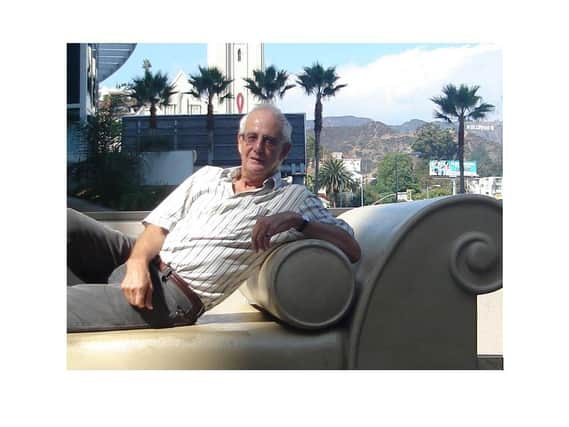East Sussex author pens the life he wished his mother had led


David Gee is the pen-name of David Helsdon, aged 78.
“I set out to write a novel in which a widow gets a second bite of the cherry.
“Searching for her wayward son Andrew in the summer of 1966, Lillian Rutherford, a 50-year-old widow from Hastings, goes to Venice, where she meets the ex-gigolo who has shared the last four years of Andrew’s life.
Advertisement
Hide AdAdvertisement
Hide Ad“His revelations about Andrew’s bisexuality shock her. Going on to Amalfi, she meets Prince Massimo Monfalcone, whose playboy son has disappeared with Andrew.
“Massimo distracts Lillian with his life story: his first wife was murdered in a Sicilian blood-feud; his second wife killed herself because of his infidelity. As they wait for news of their sons, a bond grows between Lillian and the prince. A different world – a different life – opens up for her. Is she ready for this?
“The book will, I hope, appeal to women of all ages. Lillian learns in Venice that her son has had male as well as female lovers, so I hope this will draw in LGBT readers. Prince Massimo’s life includes 50 years of Mafia history, so maybe fans of The Godfather – and movie producers – will be attracted.
“Lillian and the Italians is a book for women who worry that their lives will flatline after their children – or their husbands – leave home.
Advertisement
Hide AdAdvertisement
Hide Ad“I promised my mother years ago that I would write a novel in which an English widow finds romance and adventure in Italy. Lillian’s girlhood and a late-term miscarriage are taken from my mother’s life story, although she was widowed at an earlier age and fate did not bring her a Sicilian prince; Alzheimer’s took her down a different road. Lillian and the Italians is the life she should have had.
“My mother accompanied me on some of my research trips to Venice, Amalfi and Sicily. The first draft of the book was largely written on location, in cafes and bars and sitting on church steps.
“I started it in 1976 but then my job took me overseas and I didn’t finish it until the 1990s. I’ve had to overcome a surprising amount of resistance from editors and literary agents to a book with a heroine aged fifty; they prefer a book with a sexy young bimbo!
“I’ve started a follow-on novel in which Lillian’s son’s life intersects with a hotel owner from Hastings in Spain in 1968, the year of student protests in Europe and anti-war protests in the US.
Advertisement
Hide AdAdvertisement
Hide Ad“Hopefully it will soon be possible to fly to Spain for some location research. For now I’m relying on memories of my first visit to Benidorm in the 1960s when Benidorm had had an unfinished promenade and very little highrise – not the Benidorm we know today.
“I have published three previous novels. My first novel Shaikh-Down (2009) resulted from the six years when my bread-and-butter job in telecommunications took me to the Persian Gulf. The book is a spicy comedy about sex and assassination in a fictitious Arab emirate which most people will think they can identify.
“My second novel The Dropout (2012) was set in a fictionalized Eastbourne which my twenty-year-old hero unkindly renamed Boredom-on-Sea.”
“The book made the news when a member of the suicide-watch team at Beachy Head complained about the cover image of a car going over the cliff.
Advertisement
Hide AdAdvertisement
Hide Ad“My third novel The Bexhill Missile Crisis (2014, a prequel to Lillian and the Italians) also hit the headlines when a woman returned her purchase to the De La Warr Pavilion in high dudgeon because its adult content (clearly indicated on the back cover) made it unsuitable reading for her grandson.
“Hopefully Lillian and the Italians will prove less controversial. It is dedicated to my parents and to all those who nurse the dream that ‘someday their Prince will come."
“I’ve also got an unpublished Hollywood novel which has been collecting rejections on both sides of the Atlantic.
“I woke up one morning in my teens and decided that I would be a writer. A new author usually produces the literary equivalent to an apprentice carpenter’s three-legged chair. Several books and many rejection slips later I started being published in my 50s.”